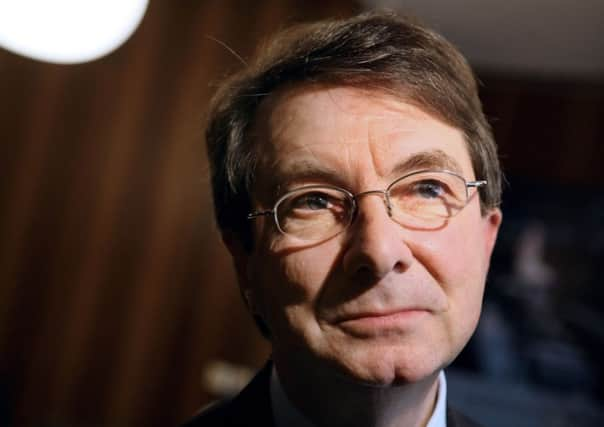Obituary: Gerard Mortier, opera intendant


For almost half a century, Gerard Mortier was an influential force in the management of opera institutions. These included the Opéra de Paris, the Salzburg Festival, the Théâtre de la Monnaie in Brussels and the Teatro Real in Madrid.
Controversy followed Mortier – indeed, he encouraged it. He programmed the unusual and challenging the accepted. He championed new opera – his last project was to commission Brokeback Mountain, based on the book and film with music by the US composer Charles Wuorinen. It took six years to get to the stage in Madrid and Mortier, already ill with cancer, was present at the first night.
Advertisement
Hide AdAdvertisement
Hide AdMortier was a non-conformist who was never satisfied with the normal. He wanted artists and audiences to be challenged orally and visually. His fiercely avant-garde opinions irritated many but he could be the most charming and engaging colleague.
His vision ensured that such challenging artists as the directors Peter Sellars, Patrice Chéreau and Luc Bondy and the composer Philip Glass were allowed to flourish under his management. Mortier was bold, uncompromising and original: his passion to make opera relevant never faltered. To the end he delighted in being an intellectual provocateur.
Gerard Alfons August came from a Flemish family and was the son of a baker. He was educated in Ghent by the Jesuits and was an enthusiastic lover of opera from his youth.
While a student at Ghent University, he led a march in 1968 against the sternly traditional repertoire of the Brussels opera house. He read law and communication and first worked as an assistant at the Festival of Flanders then with the conductor Christoph von Dohnányi in Frankfurt. He was also Rolf Liebermann’s assistant in Paris.
Mortier was appointed the artistic director of La Monnaie in 1981 and immediately scheduled a contemporary repertoire and engaged directors such as Patruice Chéreau and Peter Stein.
He caused a national controversy when he closed the theatre for a whole year and commissioned a lavish new floor by the American minimalist artist Sol LeWitt.
Mortier struck up a good relationship with Sir John Pritchard, the Monnaie’s musical director, and the two completely re-equipped the orchestra and the House. Mortier rethought the classics – Wagner’s Ring Cycle was given in one set for all four operas. The premiere of John Adams’ politically controversial Death of Klinghoffer caused a storm of protests. But he remained defiant about not engaging the stars, announcing: “The corridors at La Monnaie are too narrow for Pavarotti.”
To add to the artistic activity, the choreographer Maurice Béjart resigned as head of the ballet company in 1987 and Mortier engaged the innovative Mark Morris. He gained wide popularity for productions such as L’Allegro, il Penseroso ed il Moderato and gained much acclaim when his company visited the Edinburgh Festivals from 1992 to 1996.
Advertisement
Hide AdAdvertisement
Hide AdIn 1989 Mortier was appointed Herbert von Karajan’s successor at the Salzburg Festival. Nothing could demonstrate their different approach than the last production von Karajan directed (he, in fact, died before the first night and Georg Solti took over the baton). It was a sumptuous production of Un Ballo in Maschera with Plácido Domingo and directed by John Schlesinger.
Mortier swept away such star-studded glories. The whole character of the festival was rethought – in Mortier’s first year Riccardo Muti, a mainstay under Karajan, withdrew from conducting a modern production of La Clemenza di Tito.
He wallowed in such controversy and staged Messiaen’s four- hour epic St François d’Assise. The first night was a cacophony of cheers and boos.
For all his flair and originality, the scandals continued unabated. The soprano Karita Mattila sang Dorabella in Cosi fan tutte while being led around by two leather-clad hunks.
It was thought that Mortier might succeed Sir Jeremy Isaacs as general director at Covent Garden. In fact, he withdrew his application before the interviewing began.
In 2004 he took over the Opéra de Paris and again included in his first season St François d’Assise. In 2007 he accepted the post of the general directorship of the struggling New York City Opera. It proved a disaster – not least as he immediately cancelled the entire 2008/09 season. The financial troubles deteriorated, Mortier resigned and the company went into liquidation last year.
He took over the Teatro Real in Madrid last year and was determined to produce Brokeback Mountain, despite his failing health. Typically, he scheduled it with Tristan und Isolde – “two great love affairs”, he said when announcing the project. It was a fitting finale for such an iconoclastic man of the theatre. “I agree that art should entertain,” Mortier said at one of his dramatic press conferences. “But it should also ask questions and stir us up.”
Gerard Mortier is survived by his sister.